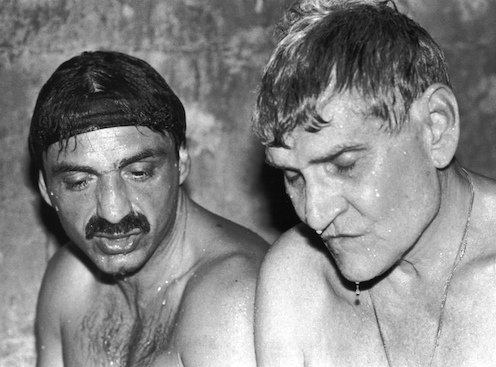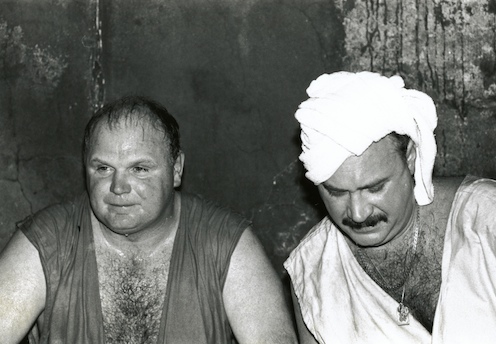The Shvitz
Full Description
THE SHVITZ looks at the last century of urban culture through the heat of the last traditional Russian-Jewish steam baths. For its enthusiasts, the baths can serve as "a proletarian country club," "a wet Disneyland," and "the best damn place to get smoked fish and vodka in the neighborhood." This offbeat documentary, akin to PARIS IS BURNING but with a lot more frontal nudity, captures the humor, drama and pathos of its real-life characters, from gamblers to new age masseuses, from gay men to the "New York City Soul Sweats." As Director Berman says, "I see great power in the themes I find at the baths - ideas of cleansing, equality, bonding, and tradition."
Filmmaker Bio(s)
Jonathan Berman has been involved in filmmaking for years, beginning his career as a stock footage researcher and assistant editor. He is director and producer of "The Shvitz," a film about the last traditional steam-baths in New York. His film "My Friend Paul," about his relationship to his bipolar best friend, was produced with ITVS, a part of the public broadcasting family. Berman is a graduate of McGill University (B.A.) and Bard College (M.F.A.) and was an artist-in-residence at Sarah Lawrence College. His work has been awarded grants from the NEA, NYSCA, the Jerome Foundation, and a video fellowship from NY State. Broadcasts include PBS, Sundance Channel, Trio Network, Discovery, NIK-TV in Holland, Danish TV, ARTE, and TV-Ontario. Screenings include Amsterdam Documentary Festival, SXSW, Slamdance, Karlovy Vary, Cork, Milan, the Hamptons and many others. Berman co-wrote the story for the US/France/Portugal co-production "On The Run," and was U.S. producer on Claudia Heuermann’s film "Sabbath in Paradise," which featured Harvey Pekar and John Zorn. He is currently finishing two feature film screenplays and developing more documentary projects.
Berman grew up at the tail end of the baby boom on the South Shore of Long Island. Merrick, NY is a place as far removed from a commune in rural California wilderness as any area in the W.S. might be. His World War II era parents, who struggled with life in the 50s and their growing 60s suburban community, stand together as the antithesis of the Black Bear Ranch commune. While not a personal work, "Commune" was created partially out of the dissidence between the filmmaker’s suburban upbringing and the seeming absolute "other" quality of the Black Bear Ranch commune. As the shooting progressed, the filmmaker, a "stranger in a strange land," noticed similarities between himself and his subjects -- for example, a bond in their common yearning for utopia. Most of the subjects, like the filmmaker, hold onto deeply optimistic views about the world and making it a better place, a belief that holds no particular basis in reality. "Tilt at windmills," one participant told us. "See what makes you bleed."
Director(s)
Country(ies)
Language(s)
Release Year
Festival Year(s)
Running Time
50


